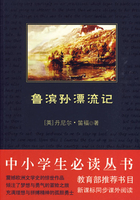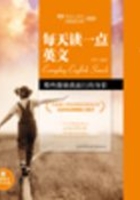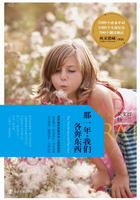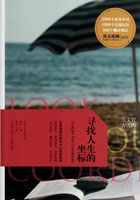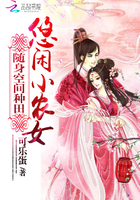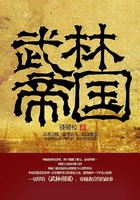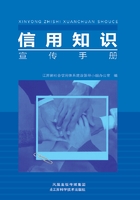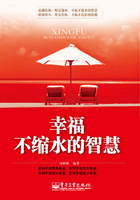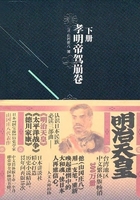同舟共济
A good boy
Little Robert asked his mother for two cents. “What did you do with the money I gave you yesterday?”
“I gave it to a poor old woman.” he answered.
“You're a good boy,” said the mother proudly. “Here are two cents more. But why are you so interested in the old woman?”
“She is the one who sells the candy.”
好孩子
小罗伯特向妈妈要两分钱。
“昨天给你的钱干什么了?”
“我给了一个可怜的老太婆。”他回答说。 “你真是个好孩子,”妈妈骄傲地说,“再给你两分钱。可你为什么对那位老太太那么感兴趣呢?”
“她是个卖糖果的。”
They're all in the same boat
Three men were sitting on a bench in the park. The middle one was reading a newspaper,and the others were pretending to fish. They baited imaginary hooks,cast lines and reeled in their catch. A passing policeman stopped to watch the spectacle and asked the man in the middle if he knew the other two. “Oh,yes,they're my friends!” “In that case,” the police officer warned him,“you had better get them out of here.” “Yes,Sir!” the man replied,andhe began rowing furiously.
同舟共济
有三个男人坐在公园的长椅上,中间那位在看报纸,另外两位则假装在钓鱼,他们用假想的鱼钩挂饵、抛出钓鱼线,再收线拉回他们钓到的东西。一位警察路过这里,他停下来看着这奇怪的一幕,然后问中间这个人是否认识其他两位。“喔,是的,他们是我的朋友!”警察于是警告他说:“既然如此,你最好把他们带走。”他回答:“是,警察先生!”然后开始奋力地划船。
单词&词组
all in the same boat字面意思是:大家都在同一条船上,指处境相同、面对同样困难或危险的人,他们的命运也会相同。
bait [beit] n.(钓鱼等用的)饵,诱饵;装饵
line [lain] n.线;皱纹;行
reel [ri:l] n.把东西用卷轴卷起来
row [rau] v.划船;争吵,吵闹
furiously ['fjuEriEsli] adv.狂怒地;猛烈地
知道不知道
boat,vessel,ship,craft有何区别
这几个词都有“船”的意思。boat 指小船,如用浆划行的船、帆船或小机动船。
ship 指航海的大船,如大帆船、轮船、战船等。ship 能用于比喻,可以用于文学语言。vessel 从词源学角度看指的是容器,在用来表示船只时,尤指运载货物或乘客的航海大船。craft 既可用于单数概念,也可用于复数概念,用作集体名词,表示一切的 boats 和 vessels。
第一章 This is my first operation
这也是我第一次动手术
My first operation
Patient:I'm so frightened,this is my first operation.
Surgeon:I know just how you feel. This is my first operation,too.
这也是我第一次动手术
病人:我很害怕,这是我第一次动手术。
外科医生:我完全理解你的心情。这也是我第一次动手术。
Don't be selflsh
A mother is admonishing her son.
“Now,John,don't be selfish. Let your little brother share the bicycle with you. ”
“But Mother,I do. I ride it down the hill,and he rides it up the hill. ”
别太自私
一位母亲在劝告她的儿子。
“听着,约翰,别太自私,让你弟弟和你共用一辆自行车。”
“妈妈,我是让他。我先骑下坡,他再骑上坡。”
Hospitality
The hostess apologized to her unexpected guest for serving an applepie without any cheese. The little boy of the family left the room quietly for a moment and returned with a piece of cheese which he laid on the guest's plate. The visitor smiled,put the cheese into his mouth and then said:“You must have better eyes than your mother,sonny. Where did you find the cheese?” “In the rat-trap,sir.” replied the boy.
好客
客人在吃苹果馅饼时,家里没有奶酪了,于是女主人向大家表示歉意。这家的小男孩悄悄地离开了屋子。过了一会儿,他拿着一片奶酪回到房间,把奶酪放在客人的盘子里。客人微笑着把奶酪放进嘴里说:“孩子,你的眼睛就是比你妈妈的好。你在哪里找到的奶酪?”
“在捕鼠夹上,先生。”小男孩说。
Always thirsty
“I had an operation,” said a man to his friend,“and the doctor left a sponge in me.”
“That's terrible!” said the friend. “Got any pain?”
“No,but I am always thirsty!”
总感到口渴
一个男人对他的朋友说:“我动了一次手术,手术后医生把一块海绵忘在我的身体里了。”
“真是太糟糕了!”朋友说道:“你觉得疼吗?”
“不疼,可是我总感到口渴。”
A businessman enters a tavern,sits down at the bar,and orders a double martini on the rocks.
After he finishes the drink,he peeks inside his shirt pocket,and then orders the bartender to prepare another double martini.
After he finishes that,he again peeks inside his shirt pocket and orders the bartender to bring another double martini.
The bartender says,”Look,buddy,I'll bring ya'martinis all night long - but you gotta tell me why you look inside your shirt pocket before you order a refill.”
The customer replies,”I'm peeking at a photo of my wife. When she starts to look good,I know it's time to go home.”
一个生意人走进一家酒馆,在吧台坐下,点了一杯加冰的双料马提尼酒。
喝完,那生意人往自己衬衣的口袋里瞥了一眼,然后又让服务员把杯子满上。
喝完,生意人又往自己衬衣的口袋里瞥了一眼,然后又让服务生帮他把杯子倒满。
这时酒馆的服务生说话了,“哦,老兄,我整个晚上给你倒马提尼都没有问题,但你得告诉我,你为什么在点下一杯酒前都要往自己衬衣的口袋里偷偷看那么一眼呢。”
这位客人回答道,“我看的是我老婆的一张照片。如果照片上的人开始变得好看起来,那就说明我喝得差不多了,该回家了。”
单词&词组
frightened [5frait(E)nd] adj.受惊的,害怕的
admonish [Ed5mCniF] vt.劝告,训诫
hospitality [7hCspi5tAliti] n.殷勤,好客
hostess [5hEustis] n.女主人
rat-trap 捕鼠器
sponge [spQndV] n. 海绵
tavern [5tAvE(:)n] n.小旅馆,酒馆
on the rocks触礁,搁浅,加冰块

